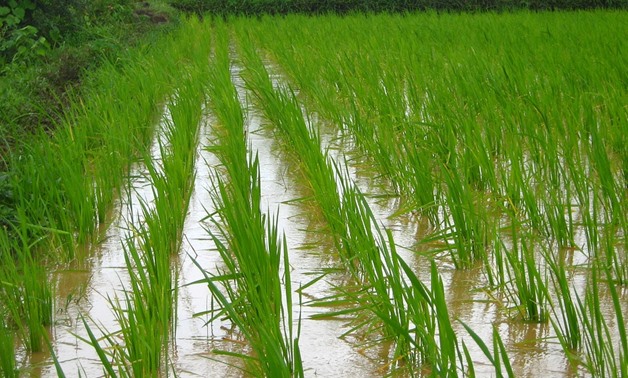
Rice is cultivated once a year in Egypt – CC via Pixabay/Natalia Rezanova
CAIRO – 13 August 2017: Rumors on social media that the state would allow rice exports were negated Sunday by Ragab Shehata, the head of Rice Division in the Federation of Egyptian Industries, affirming that exporting rice is banned throughout the fiscal year 2017/2018.
Rice producers usually opt for exporting, which causes the increase in the good’s price locally. As rice is subsidized by the state for those enrolled in the subsidies program, high costs of the good affects the state’s budget indirectly.
Supply Minister Mohamed Ali Meselhy affirmed in a press conference on Tuesday August 8 that the government decision to ban rice exports is still valid, and that the strategic stock of rice is sufficient for national consumption fulfillment.
The minister noted that the whole area cultivated with rice hit 1.8 million feddans (One feddan = 1,025 acres), according to MENA.
On June 4, Abdel Latif Khaled, head of the Reservoirs and Grand Barrages Sector of the Ministry of Water Resources and Irrigation, told Egypt Today that the current area cultivated with rice exceeds the authorized areas for rice, which has to be just one million feddans.
However, Egypt is set to produce twice as much rice this year as last year, Meselhy told Reuters on July 11.
According to the Food and Agriculture Organization (FAO), rice is cultivated once a year in Egypt. Almost all rice is produced in the valley of the lower Nile, particularly in Damietta, Dakahlia, Kafr al-Sheikh, Sharqia, Beheira, and Gharbia.
The seed production activities are carried out mainly by state seed farms, but other services supporting rice production such as land preparation, input distribution, harvest and post harvest operations have been transferred to private sector and farmers’ associations.
There are several constraints to sustainable rice production in Egypt including shortage of water, salinity, pests and diseases and climate change. In August 2015, temperatures were abnormally high and caused damage to crops, particularly rice.
The extreme heat accelerated crop development, reducing grain size and weight. The rough rice yield for 2015/16 was 28 percent below the previous year’s record, and 22 percent below the 5-year average.

Comments
Leave a Comment